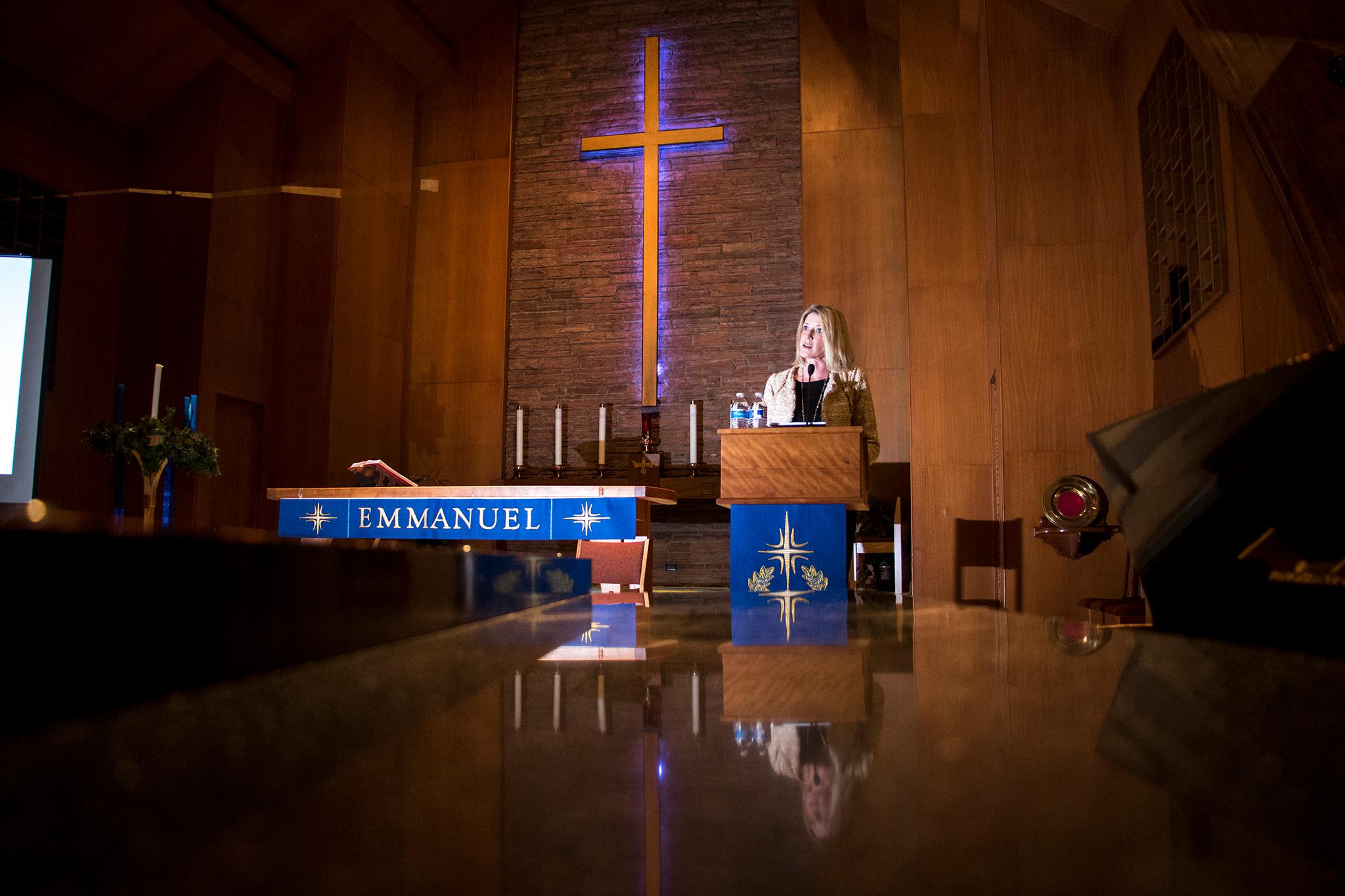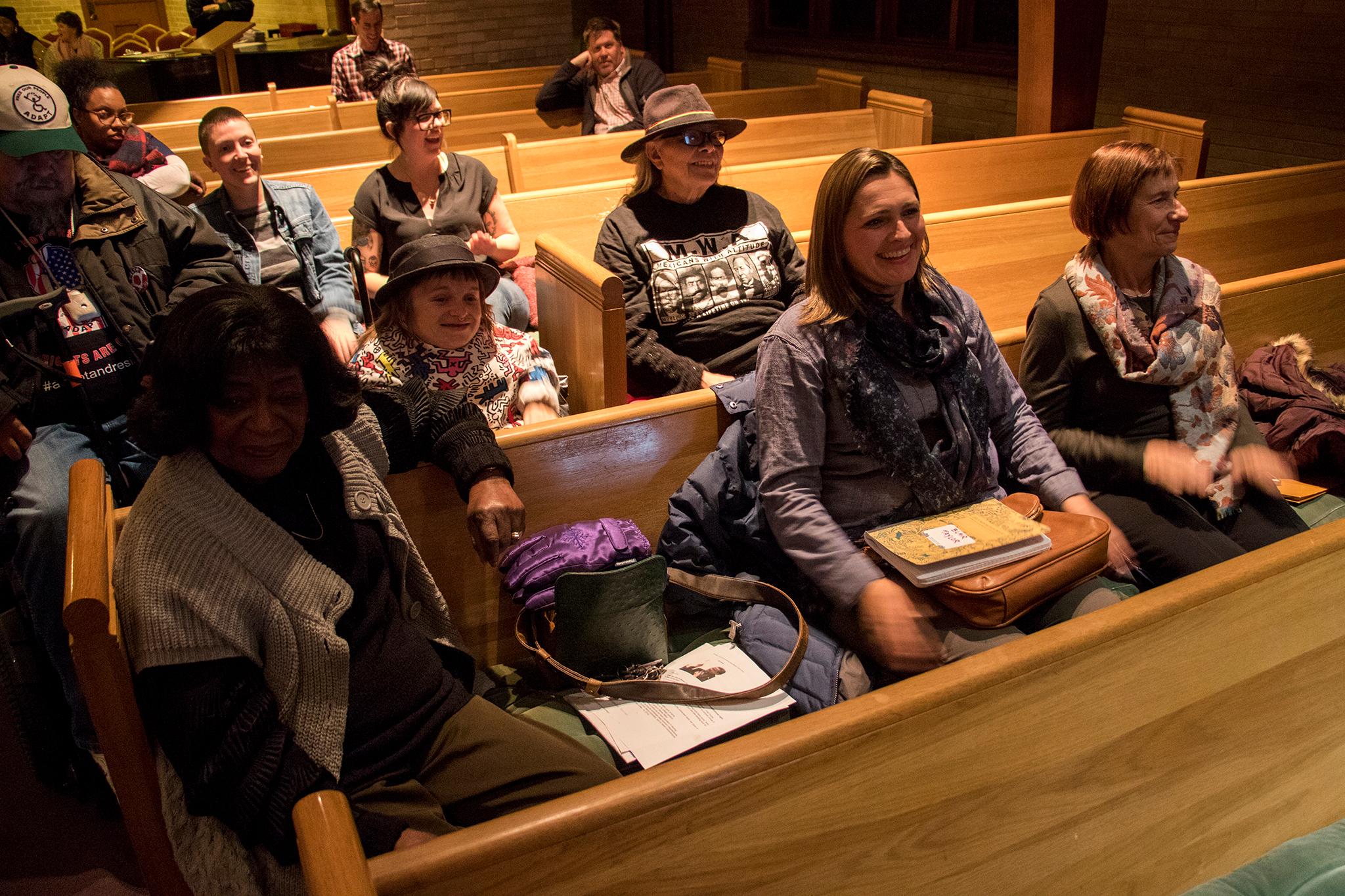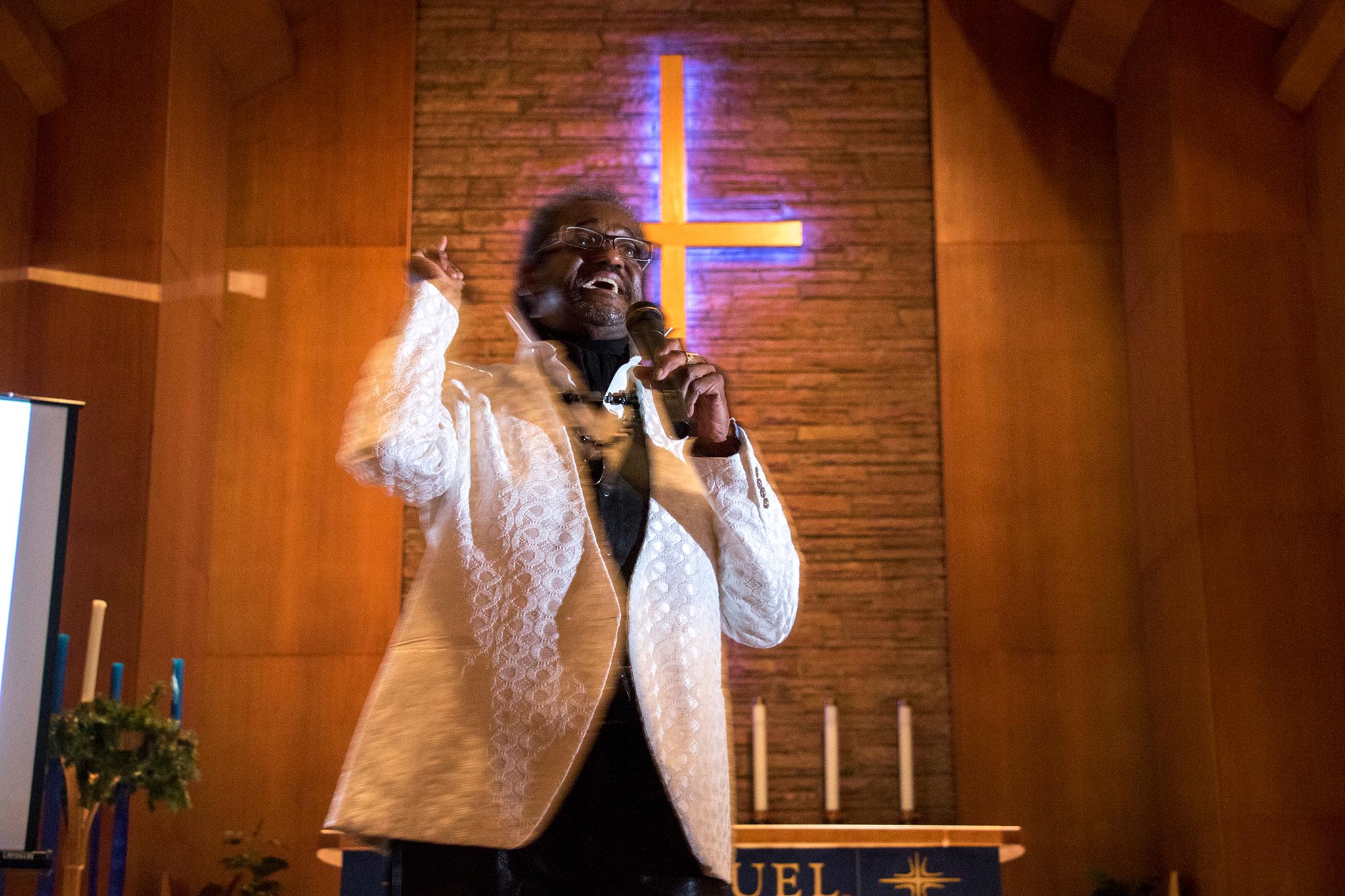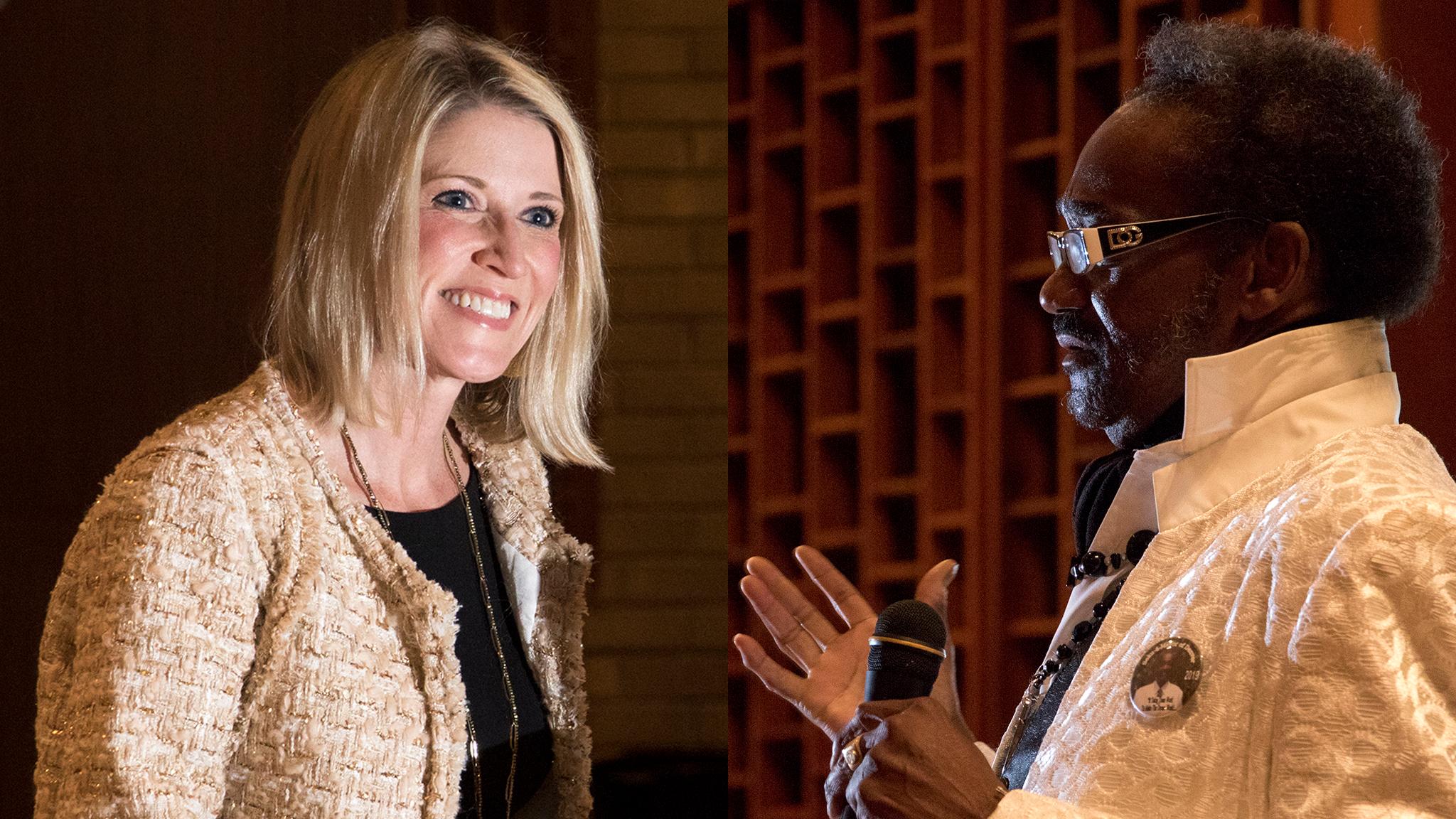Denverites lined up at Temple Emanuel in South Park Hill on Tuesday night to ask Jamie Giellis and Chairman Seku, two of 11 candidates for mayor, how they would change Denver.
Like last month's City Park Friends and Neighbors event with candidates Lisa Calderón and Penfield Tate, it was not a debate. The candidates were banned from challenging one another, but repeatedly challenged Mayor Michael Hancock and his administration.
Also, Seku (legal name Stephan Evans) had the audience snap to emulate rain and scream as if they were at a Marvin Gaye concert. A synergy exercise, he said.
Giellis, former president of the RiNo Arts District and a consultant for changing neighborhoods with Centro, covered an expansive platform focusing on housing and homelessness, transportation and decentralizing power in the mayor's office.
She also made a distinction between gentrification and displacement, calling the former a "challenging prospect in an economy that's market-driven and doesn't put it's people first."
Giellis committed to creating an affordable housing quota -- a percentage of homes set aside for lower-income residents. Giellis would deliver those units by streamlining the bureaucracy, she said, to ensure fees paid by developers translate to brick and mortar. Partnerships with private developers, not just the Denver Housing Authority, would play a role.

Referring to people experiencing homelessness, Giellis said the Hancock administration is "doing nothing but ignoring the problem."
"I would take away money from incarcerating and sweeping people from public view and put it into fixing the problem," she said.
Seku, who is not employed, had stark words, too (starker words, really). The Five Points native bashed the city government vociferously for what he called "ethnic cleansing" and "gentrification genocide." That's how he characterized what he deemed unfettered growth at the expense of poor residents, often people of color.
The self-described revolutionary called Denver politicians, generally, "scumdog millionaires" looking to get more money. He did not convey specific policy goals, but got the crowd cooing when he said he'd give power to the people of the city.

"I am not competing to the office of mayor," he said. "I'm not... I'm here to represent you, not me."
Giellis also conveyed a message of empowering residents -- and weakening the mayor's office.
In her home state of Iowa, Giellis said she helped turn the Cedar Rapids government into a "weak-mayor" and "council-strong" system. Denver has the opposite setup. She would not commit to changing the city's charter in that vein, but said the mayor's office should have more checks and balances, whether it's by day-lighting political appointment decisions or creating a more "community-based" budget process.
"I absolutely believe there should be more checks on the mayor," Giellis said. "The problem inherent in a charter system is you get the good and bad depending on who's in the leadership role."

Seku committed to letting the audience ask questions for most of the night, but spoke for 45 minutes, leaving no time for interaction. It was plenty of time to make his case for leadership, though, by relaying much of his life story over a sometimes meandering speech.
He started with his days at Smith Elementary School but spent way more time boasting about his leadership role on the Manuel High School basketball team, where he apparently rocked the nickname "Pretty Evans."
The chairman went on to the University of Denver where he says John Rice (former Secretary of State Condoleezza Rice's dad) mentored him. He called himself "a fly in the buttermilk" at the predominately white school. Seku gained a taste for activism there, but didn't graduate.
"I never gave any of the institutions the honor of me graduating from there," Seku said, half-jokingly. "I'm not gonna give them credit for my intelligence."
CPFAN invited Mayor Hancock to speak at its January meeting. The neighborhood organization received a response saying he'd attend if his schedule allows.














